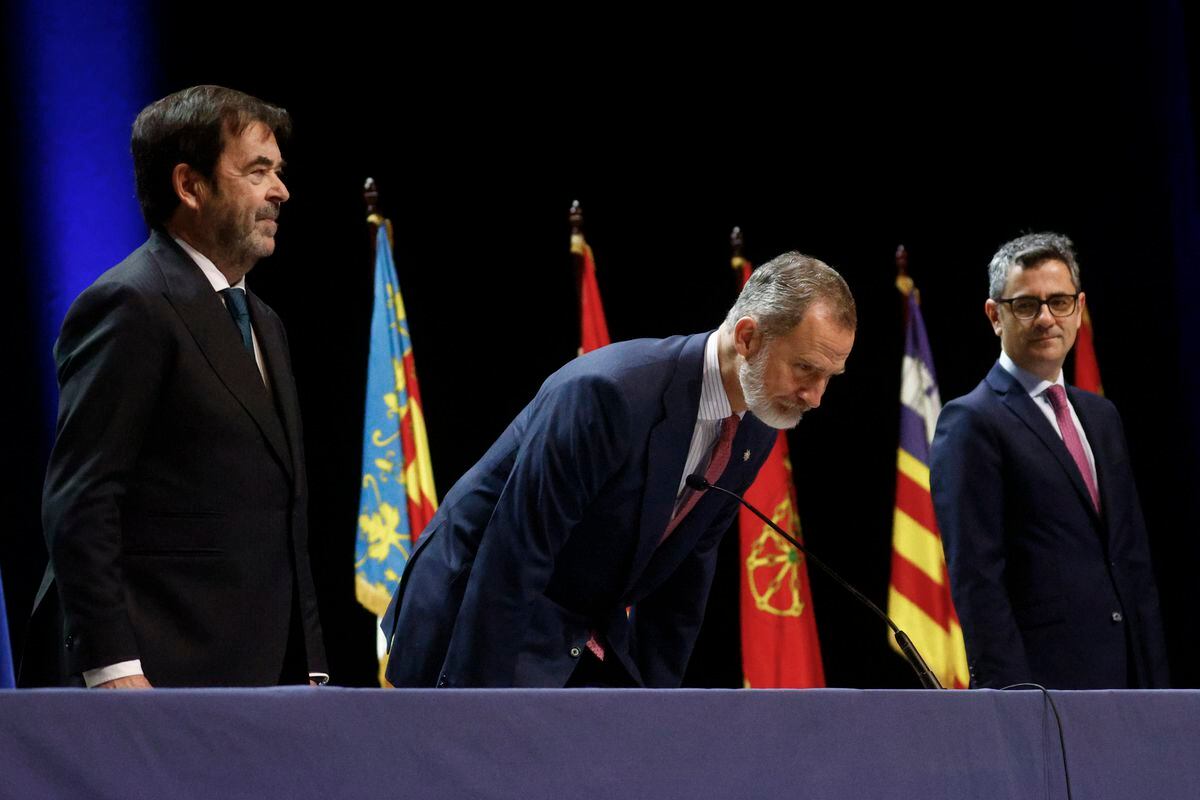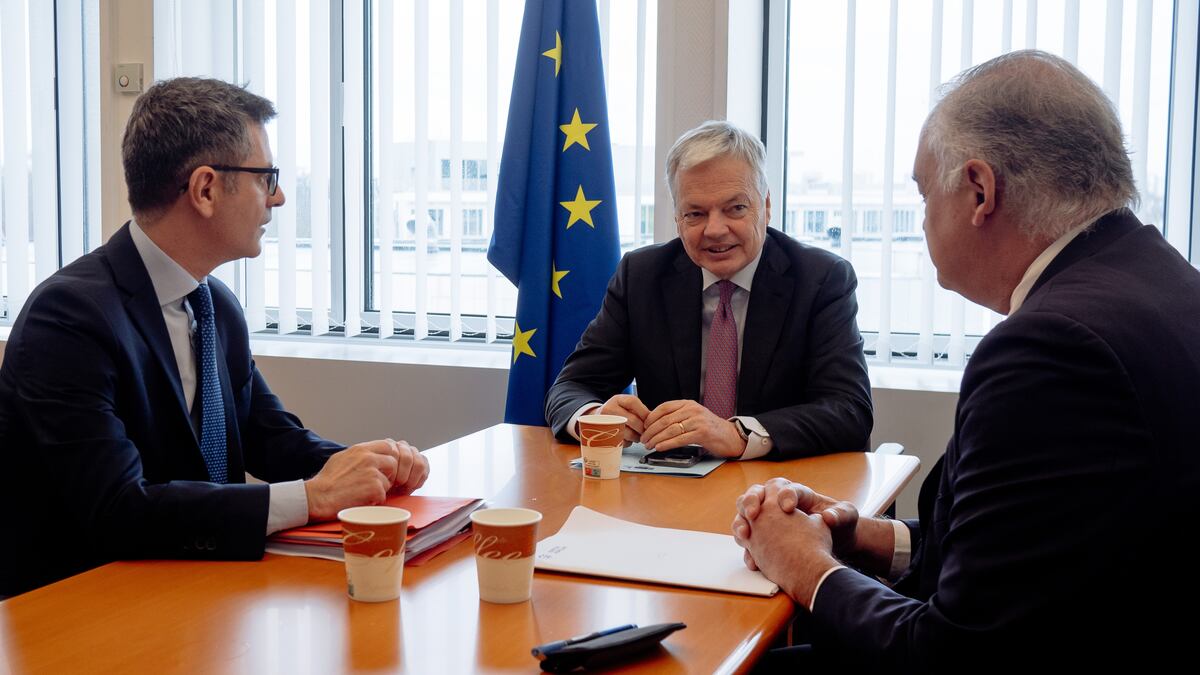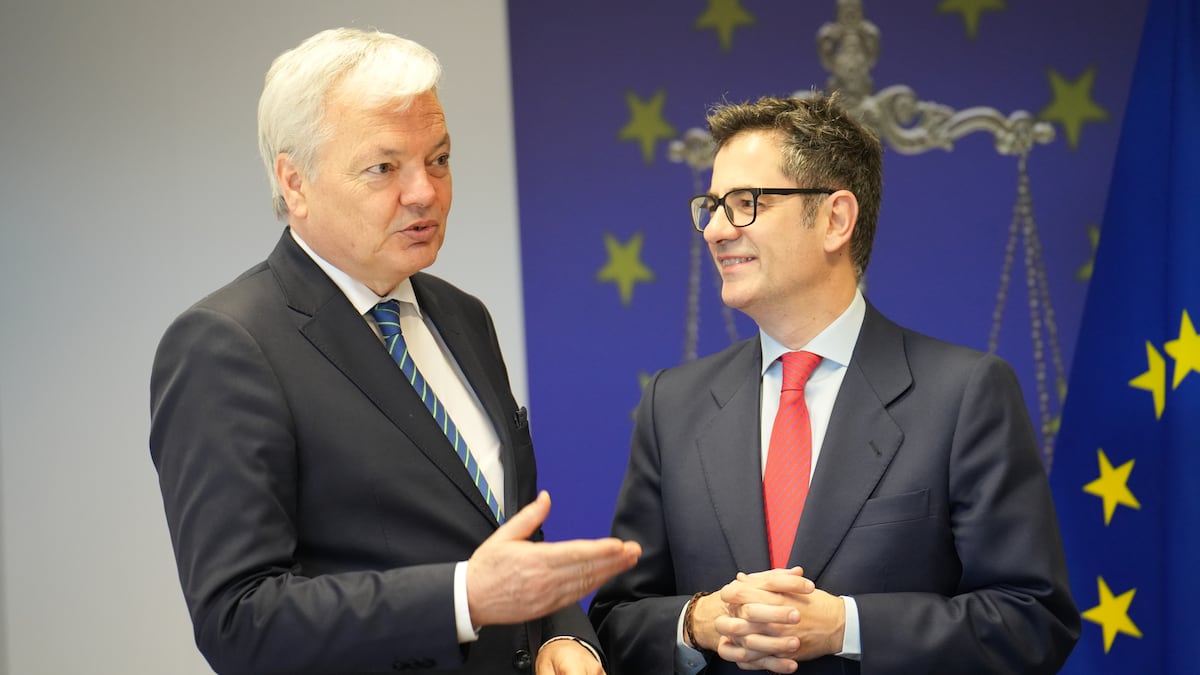The European Commission wants Spain to close once and for all the renewal of the General Council of the Judiciary (CGPJ), pending since December 2018, and hopes that it will be possible to do so before it assumes the rotating presidency of the Council of the European Union on July 1. This was expressed on Monday in Madrid by the European Commissioner for Justice, Didier Reynders, during his speech at the event organized by the World Association of Jurists (WJA). It is not the first time that community leaders, including Reynders himself, urge Spain to renew the CGPJ before assuming the European presidency, but this time, the Commissioner for Justice has made his appeal to King Felipe VI and the Minister of Justice, Pilar Llop.
"We recommend proceeding with the renewal of the CGPJ. It is a priority and, immediately after the renewal, a process in order to adapt the appointment of its members taking into account European standards, "said the Commissioner for Justice in relation to the change of model of the vocal judges of the Council that Brussels demands with the aim that all of them are elected by the judges themselves without political participation, as it is now. "It will be positive to implement the recommendations before the start of the Spanish EU presidency in July," added Reynders.
Asked about it, an official spokesman for the PP has specified that the position of the party has not changed and that the PP is willing to agree to the Council if the Government agrees to reform the law immediately after as requested by the commissioner. "There is no news. If Pedro Sánchez listens to Reydners... We have not changed our minds. Europe is squeezing Sanchez." "He will know how he wants to start his term in the Spanish presidency of the EU," these sources add, reports Elsa García de Blas. The popular always demanded a modification of the law so that the judges directly elect at least half of the members of the Council, although they broke the negotiation with the Government for the reform of the crime of sedition.
More information
The European Commission warns that the blockade of the Judiciary begins to affect the functioning of justice
The same month in which Spain assumes the European presidency, the annual report on the rule of law in the EU is expected to be published and if by then the CGPJ has not been renewed, as seems foreseeable, it will probably place this circumstance among the notable breaches of Spain. In last year's report, Brussels called on Spain to proceed with the renewal of the CGPJ "as a priority" and to initiate, "immediately afterwards", a process with a view to changing the method of election of its members "taking into account European standards"; that is, establishing that at least half of its members are "judges chosen by their peers". In Spain, the 20 members of the body are elected by the Cortes, although the 12 of judicial extraction come from a list of names previously provided by the associations of judges.
Reynders has not advanced on Monday any details of the next report, but has welcomed that those of previous years have already led to implement "positive reforms of the judicial system" in some member countries, as was the case of Luxembourg and its constitutional reform. The Commissioner pointed out that the Commission always tries to enter into a dialogue with the Member State concerned first, "but unfortunately dialogue does not always bring results". For this reason, Brussels opts for a "dual approach" based on dialogue and, when necessary, "decisive actions". "We can launch infringement proceedings and ultimately turn to the EU Court of Justice." This first option has already been used with Poland, Reynders recalled.
There are also new instruments, such as the conditionality of the funds, recalled the Commissioner. In this regard, he said, the EU already launched a budgetary conditionality procedure against Hungary last year, which meant that funds for this country were blocked. In addition, a series of milestones have been established in the case of Poland and Hungary related to this matter that must be met in order to receive European funds for their respective recovery plans.



/cloudfront-eu-central-1.images.arcpublishing.com/prisa/DXFPLFBJPRDFBOOW5OWCTCNHJU.jpg)
/cloudfront-eu-central-1.images.arcpublishing.com/prisa/WXWUA7CAWZGZHKO26CZYXXWMEE.jpg)




/cloudfront-eu-central-1.images.arcpublishing.com/prisa/OCXVGAGDFFE6NDRQIKWRK26LLU.jpg)